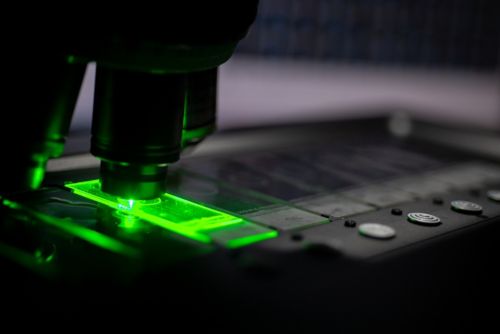St. Jude Family of Websites
Explore our cutting edge research, world-class patient care, career opportunities and more.
St. Jude Children's Research Hospital Home

- Fundraising
St. Jude Family of Websites
Explore our cutting edge research, world-class patient care, career opportunities and more.
St. Jude Children's Research Hospital Home

- Fundraising
Alyssa Kennedy Lab
Investigating the molecular drivers behind bone marrow failure and leukemia predisposition syndromes.
About the lab
Bone marrow failure syndromes are rare diseases that occur when the bone marrow fails to produce blood cells (white cells, red cells and platelets). This causes a myriad of health complications for children affected by these syndromes, including an increased risk of developing blood cancers such as myelodysplastic syndrome and leukemia. We are interested in identifying the genetic components that drive bone marrow failure syndromes as well as understanding the biology behind what causes some children with these disorders to develop cancer.

Kennedy research summary
Some children are born with a tendency to develop bone marrow failure disorders. In many cases, these disorders progress to blood disorders such as leukemia. However, the molecular mechanisms driving this progression are not well understood. We aim to determine the molecular underpinnings of these disorders and identify additional mutations that play a role in the malignant transformation into leukemia.
Shwachman-Diamond Syndrome
My lab focuses on a specific type of bone marrow failure disorder called Shwachman-Diamond Syndrome (SDS). SDS is a recessively inherited disorder most often caused by a mutation in the SBDS gene, located on the long arm of chromosome 7. This gene encodes a protein called SBDS protein which is instrumental in eukaryotic ribosomal maturation and, therefore, normal ribosomal function.
Patients with this disorder have defects in ribosome maturation and translation and can develop bone marrow failure with a high risk of leukemia. Certain somatic mutations are more likely to cause cancer whereas other mutations are actually beneficial to the bone marrow and improve cell survival without causing cancer. We are investigating which mutations are malignant and which are adaptive.
We use in vitro cell culture modeling including induced pluripotent stem cells, translational assays, single-cell genomics and functional genomic approaches to determine how somatic mutations affect SDS-induced ribosomal defect and to determine whether these mutations either contribute to malignancy or act in a compensatory manner to alleviate the disorder.
Our goal is to identify genetic biomarkers for patients with bone marrow failure that can be used to indicate an increased risk of malignancy and develop the next generation of therapeutics that can be used to treat these children before they develop cancer.
Publications
Contact us
Alyssa Kennedy, MD, PhD
Assistant Member, Department of Hematology
St. Jude Children's Research Hospital
Memphis, TN, 38105-3678 USA

Memphis, TN, 38105-3678 USA GET DIRECTIONS